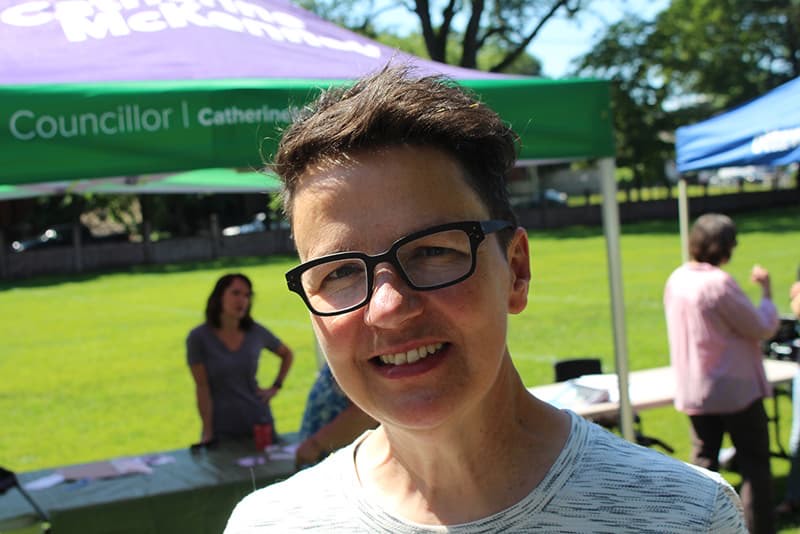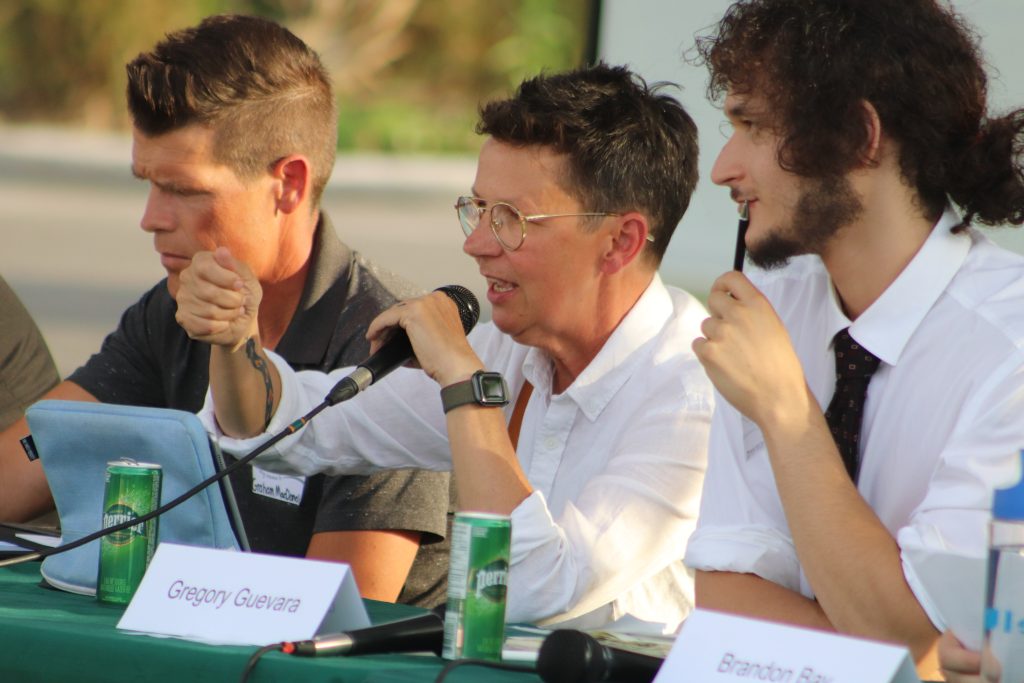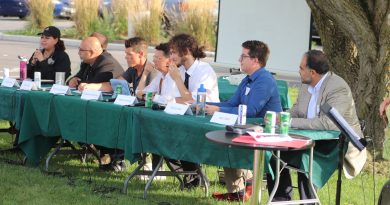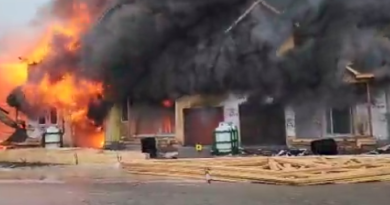Catherine McKenney Releases Barrhaven Platform
By charlie Senack, Barrhaven Independent
Somerset ward councillor Catherine McKenney, who is now running for Mayor of Ottawa, says they are ready to serve the needs of suburban residents.
McKenney, who has been a councillor for two terms, decided to run for the top city job after current Mayor Jim Watson announced he wouldn’t seek re-election after a lifetime in politics.
McKenney and Watson have often butted heads on how the city should be run, with the Somerset ward councillor gaining traction in their movement after vocally speaking out against the trucker convoy in February.
“I am running for Mayor because I believe I am the leader who can deliver change in this city and build this city to work for everyone,” McKenney said. “I have the vision to make Ottawa the greenest, healthiest, best-connected city in the country. I have the experience. I’ve lived in a suburban community, I’ve worked for the councillor in that community for six years, I’ve been senior staff at the city responsible for operations, and a two-term councillor.”
While McKenney has been an advocate for downtown-area needs, they say much of what suburban voters want is similar: easier access to transit, more affordable services, and less congestion on roads.

McKenney says they were just in Barrhaven a few weeks ago talking to residents about concerns over the amount of traffic on large roads such as Greenbank, Strandherd, and Woodroffe, and the rise of truck traffic flowing through the suburban neighborhood.
The Mayoral candidate was among nine councillors to vote against rezoning for the South Merivale Business Park, which would allow for a warehouse and transport terminal to be built on the site. After much back and forth and appeals, the zoning change received the green light.
“Trucks are there for two reasons: often it’s for construction, which is the more difficult one to deal with because our communities are growing, but also for deliveries,” they said. “We have to find a way to establish depots outside of our neighborhoods and have smaller vehicles going to make deliveries.”
One way to reduce traffic is to better public transit, says McKenney. Barrhaven is known to be a community underserved by bus routes, making it especially difficult to get from one side of Barrhaven to the other.
“When we think about transit for people living in Barrhaven, we want to ensure that they can travel to wherever they are going,” McKenney said. “We also need to look at if the need is shifting towards more local transit. Is that where the funding requirement should be focused? Is it keeping BRT (bus rapid transit) which is quite effective and having more investments in local routes?”
That could mean scrapping Phase 3 of LRT out to Barrhaven, which currently sits with a price tag of $3.52 billion. If built, trains won’t be rolling through the neighborhood for at least another decade.
Ideas have been swirling around suggesting that a portion of that funding could instead be put towards localized routes, an idea many local Barrhaven council candidates also have.
McKenney says that doesn’t mean an automatic end to Phase 3 of light rail transit, but believes plans should be re-assessed as ridership habits change.
“We are living in a different time where people aren’t travelling downtown at the same rate and park and rides are empty,” they said. “When you think about Barrhaven, the number of local routes does not serve the population. You would have a difficult time getting to a Library, grocery store, and then back home. It would take a long time.”
McKenney is a supporter of free transit but says there are many different ways to achieve that goal. They note transit is already free for seniors on Wednesdays and Sundays, and for kids under the age of seven.
The first step, McKenney says, is to stop raising transit fares. From there perhaps certain routes in lower income areas could become no charge, along with possibly expanding the free transit age above seven.
Just weeks ago in a memo sent to council by Renée Amilcar, GM of transit services, and Wendy Stephanson, the city’s chief financial officer, they said in order to make transit free for everyone across Ottawa, it would add an additional $482 to people’s property tax bill every year. .
McKenney says that information being released was just a scare tactic. They also said there are various ways to cover those costs.
“We have to make transit efficient and effective,” the Mayoral candidate said. “As a city councillor, we all get a free transit pass. And we do that because we encourage free transit use. I take the train, it’s very close to me; I’m very fortunate and it comes very regularly. But I don’t use transit as much as I should because it’s not effective enough. We need to make it work better. It has to show up where you are and get you to where you want to go.”
In the Spring, McKenney raised concerns over proposed changes made to the Jockvale floodplain in order to make way for a Caivan Housing development. They weren’t the only one. City engineer Ted Cooper, who presented to the planning committee as a private citizen, said any changes made would later cause flooding downstream in Heart’s Desire. About two decades earlier he raised concerns over a similar matter in Kanata, but wasn’t listened to. His theories became right.
McKenney says when the issue came before their desk, they drove out to Barrhaven to see for themselves what type of issues this could cause.
“I discovered it through the growth management plan when I saw there was potential for housing units; it wasn’t very dense,” recalled McKenney. “As a city councillor, I knew that a decision never came in front of me to change a floodplain, to do an exceptionally large cut and fill and allow that flood plain to be shifted. The people who will be affected — and they will be — are down the street in Hearts Desire. What makes a city affordable? It’s not putting an entire community at risk of flooding one day, and then having the rest of the city deal with that. It seemed outrageous to me that this could happen.”





